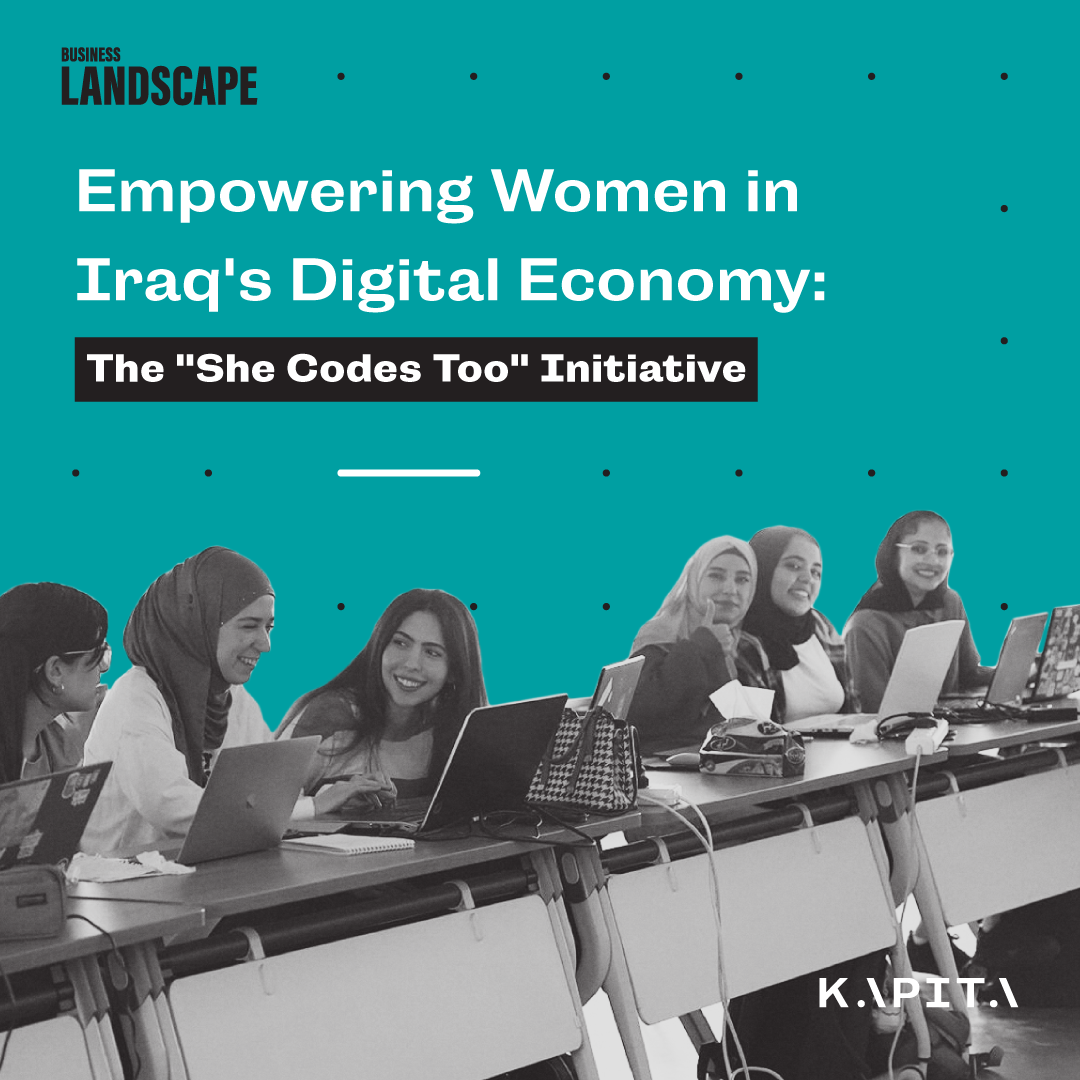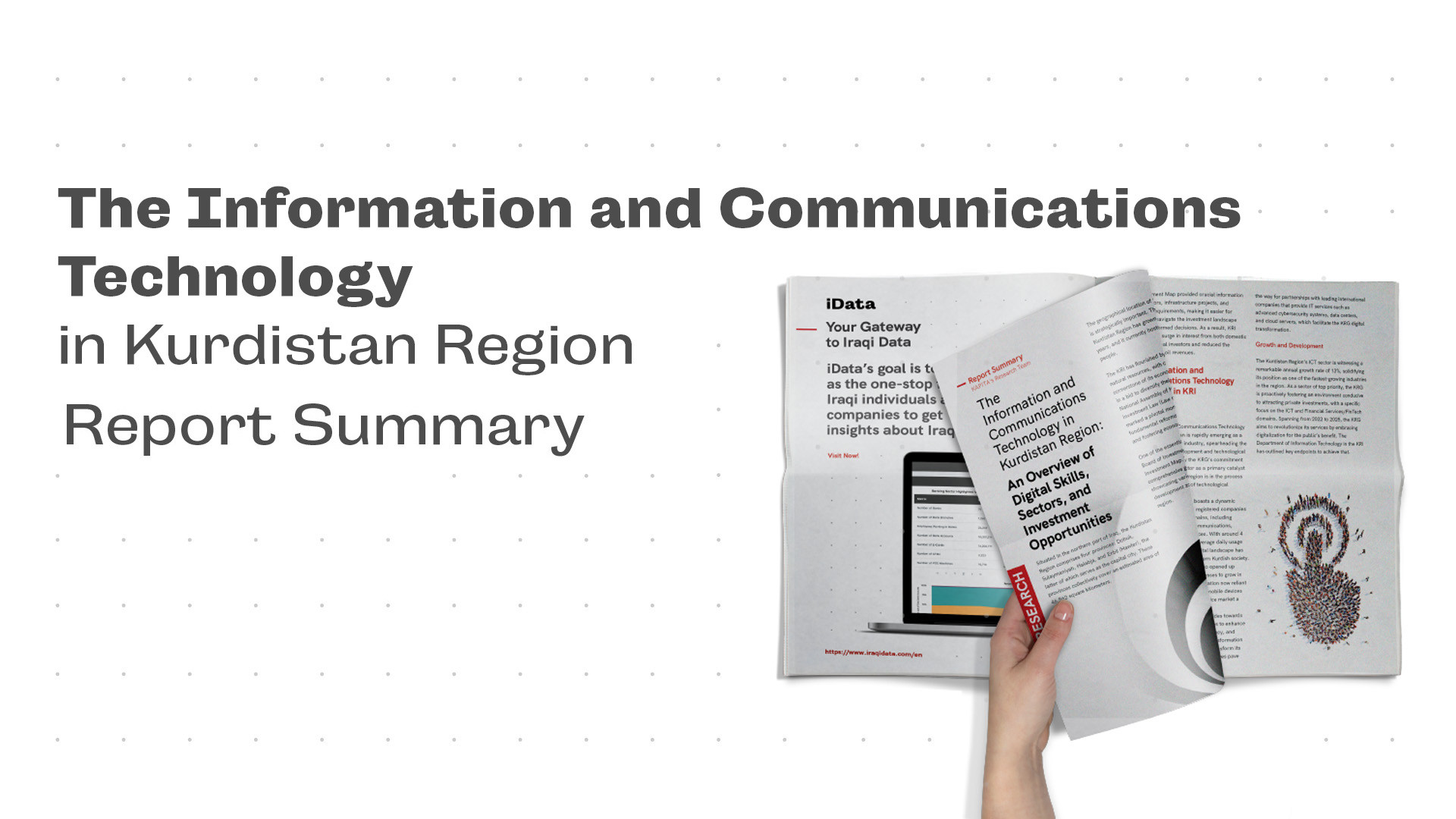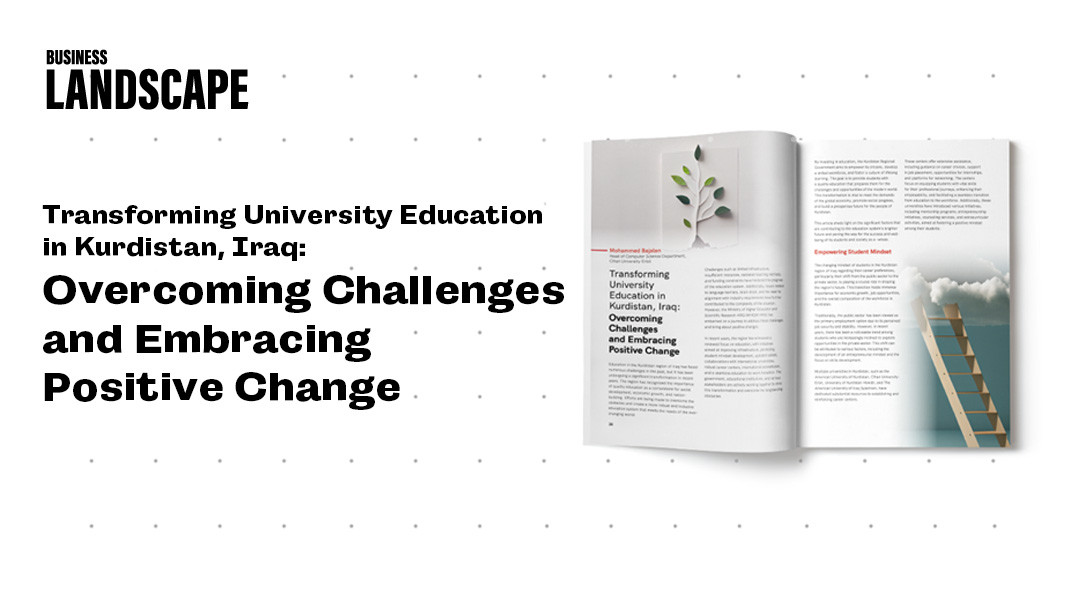Issa Mohammed
Editor, Business LANDSCAPE
The reliance on oil in Iraq has led to the neglect of many other industries, which led the Iraqi market to be an import-based market. Regardless of the extensive range of available imported products on the store shelves, there are still many products that are missing, despite the existing demand. The internet penetration, the young tech-savvy population, and the rising demand for more unavailable products have created an untapped market potential for many businesses especially e-commerce and social e-commerce platforms, to import from international e-commerce players who have turned a blind eye to the market opportunities in Iraq and till this day do not ship to Iraq.
Many businesses capitalized on this opportunity which led to the emergence of specialized e-commerce platforms such as Pure Platform, Orderii, Simma that function explicitly as the middleman between the customers and international e-commerce platforms such as Amazon, eBay, and others.
Recently there has also been an expantion into the Turkish market and its popular e-commerce platforms such as Trendyol, which could be due to the enormous range of products and the relatively affordable prices compared to the Iraqi market, in addition to the geographical location of the country that has reduced the numbers of shipping days. Other Iraqi e-commerce platforms, such as Miswag, have also expanded their operations, from offering products from merchants in the Iraqi market to ordering from Trendyol.
This indicates a huge opportunity for international players to expand their operations to Iraq, whether in terms of logistics or warehouses. However, the question remains why Iraq is not on the map for those giant international players.
This realization has compelled Business LANDSCAPE to delve deep into the issue to understand why shipping to Iraq seems inconvenient for international e-commerce and how the Iraqi market is working around these issues. We have interviewed Shakir Ayad, Co-founder and CEO of Orderii, a company that offers logistics and fintech solutions to customers who want to order from international vendors by handling the payments and the shipping logistics, to provide us with insight into the inner workings of Iraqi companies to address these issues.
We have identified some major themes that the issue stems from, and resulted in Iraq not being on the radar of the international players. The root causes are as follows:
Dependence on Cash
The dependence on cash in Iraq remains one of the main issues that hinders the growth of many businesses. This dependence is rooted in the lack of citizens' trust in the banking system coupled with the lack of accessibility and availability of financial products. According to the World Bank, there are only four bank branches for every 100 thousand people in the country, compared to double this number in the UAE and 14 branches in Jordan. While the number of ATMs in Iraq per 100 thousand people is only 5.35 compared to six times this number in Jordan and ten times in the UAE. Therefore, despite the emergence of many digital wallets and the increase in the issuance and use of bank cards, online payment methods in Iraq are still limited and cash on delivery remains the most preferred payment method. This has turned e-commerce platforms, last-mile delivery, and shipping companies into cash collection businesses that handle and deal with unfathomable amounts of cash. This could be the principal issue behind the international players’ reluctance to enter the Iraqi market.
Legislation Issues and Customs Irregularities
The customs in Iraq are currently not well regulated and nor follow a certain list, meaning that items are sometimes taxed based on the whims of the officer who is taxing the shipment. Shakir told Business LANDSCAPE that a particular item that was shipped was once cleared and received without any taxation, but once it was re-ordered, a tax was imposed. These inconsistencies cause a challenge to carriers, as they cannot inform their customers of what taxes to expect once their shipments arrive. Therefore, many carriers list a disclaimer about taxes and their inconsistencies. Some items that could come in easily today might not be allowed to enter tomorrow.
At the same time, the rate for taxation is set on the invoice that comes with the item. Shakir told us, “It depends on the invoice; the higher the value, the higher the price.”
Aside from that, the handling company in Baghdad has excessive bureaucratic processes and limited working hours on a five-day week. Given the large number of shipments that are ordered to satisfy the market need in Iraq, those hassles are hindering the growth of the imported items market. Custom clearance has become, in fact, the most time-consuming step in the shipping process.
Testing
The time consumption that custom clearance usually takes becomes more apparent in the case of the so-called ‘dangerous goods,’ items like lithium batteries, sprays, paints and perfumes. Those items are usually tested and are likely to be more difficult to clear.
While in Erbil, the testing laboratories are located in the airport, in Baghdad they are located in downtown Baghdad, making the clearance process take around a week for the testing results to be back. As for Orderii, Shakir stated their company handles those types of orders that contain dangerous goods as follows. “We cancel these items. Dangerous goods have their own set of rules and regulations, making them not inadmissible but very difficult to clear.” This is limiting a very large range of products that could have been of value to the Iraqi consumer.
Transportation
Another issue would be choosing which city to receive your shipments. The process is often smoother, and the rules are less ambiguous in KRG. Hence, carriers are well aware of what to expect there.
The rates by kilogram are 25% cheaper, and the process is faster due to the fact that the airport facilities are in charge of all aspects of shipping logistics, handling, customs clearance, and testing. However, the setback is the land transport from Erbil to Baghdad. The roads are mostly underdeveloped and dangerous in terms of infrastructure, and transportation is costly. There is also the issue of checkpoints at local ‘borders’ between cities. These checkpoints could confiscate items or delay shipments. In addition to the fact that the market is bigger and the demand is higher in Baghdad. Therefore, many businesses choose Baghdad as their shipping hub despite the convenience that Erbil offers.
International Companies’ Reluctance to Shipping to Iraq
Now that we have identified the local side of the issue, we wanted to investigate what hinders the international market from shipping to Iraq. As the international market is as globalized as ever, why is Iraq still not on the map? We have contacted some of the more renowned international and regional e-commerce companies to try to hear their side of the story.
The world’s most prominent e-commerce platform, Amazon, has told Business LANDSCAPE, through their customer service representative, that “if the item is sold by the seller, they will pick where to ship. Some items marked "Ships and Sold by Amazon" are shipped directly from our suppliers to our customers. It is sometimes not possible for suppliers to ship outside the 48 contiguous United States.” When further pressed about the reason that their suppliers would not ship to Iraq, Amazon did not have an answer. We tried inquiring about the reasons from the merchants themselves but could not find a solid answer. It could be that the majority of those merchants rely on certain logistics companies that would not afford the cost and risk to ship to Iraq and are not well aware of the market potential there.
As for many Amazon suppliers, they have also abstained from shipping to Iraq as their trade lane coverage has excluded Iraq, and they do not have freight forwarders located in the country. This includes many large companies like Freightos, Shipkoo, Unicargo, and Flexport.
Other popular large e-commerce platforms have a similar issue, where the international shipping companies, the connecting line between the customers and merchants, do not ship to Iraq. This is the case with eBay, the second largest US e-commerce platform, which has told Business LANDSCAPE that their “Global shipping eligible countries currently do not support Iraq. Items can still be shipped to Iraq using other international services.”
On the other hand, Etsy, an e-commerce company that focuses on handmade or vintage items and craft supplies, is fully dependent on the seller rather than the company itself. If a seller wants to ship to Iraq, they need to list the eligibility of Iraq on the website and handle the logistics of shipping themselves.
Recently, products from the Chinese e-commerce platform Shein, has been gaining massive popularity in Iraq, and many Iraqi trends influencers have been promoting it. However, Shein, does not ship to Iraq, claiming it is for logistics reasons, and they are looking to develop new shipping channels to reach more countries. Many Iraqi Instagram stores have been capitalizing on this opportunity and acting as the middleman between Iraqi customers and Shein merchants.
On a regional scale, we have contacted some of the biggest Middle Eastern e-commerce companies in regard to the same issue. Noon.com, the Emirati e-commerce company, only operates and delivers to customers in the UAE, KSA, and Egypt, but they claim to be working on expanding to other markets soon. However, Namshi, another e-commerce company that was recently acquired by noon.com, delivers to Iraq with multiple payment options, including cash on delivery. We are unsure if the acquisition would enable noon.com to ship to Iraq or disable Namshi from shipping to Iraq.
Conclusion
The global economy is more interconnected than it has ever been. Iraq must understand the need to facilitate the movement of goods and take some serious steps to be fully connected to the world by building and maintaining a sound infrastructure and defining clear procedures and regulations to address the challenges of shipping services in Iraq. On the other hand, the need for imported products, the increase in online shopping trends, and the young tech-savvy customer segment have all pushed Iraqi entrepreneurs to find solutions that could serve as a template to overcome these issues, turning this challenge into an opportunity to be seized. FinTech solutions like Orderii are entering the market as part of the wave of entrepreneurial spirit that has been transforming the country for the past few years. Those companies, led by the emerging and ever-growing private sector initiatives, are doing their best to connect Iraq to the rest of the world by assisting in the movement of goods to the country. Iraqi entrepreneurs could be a huge asset to international companies looking to expand their operations into the Iraqi market; they have the resilience and dedication, are well aware of the local context, and have the toolkit to operate in this market.






